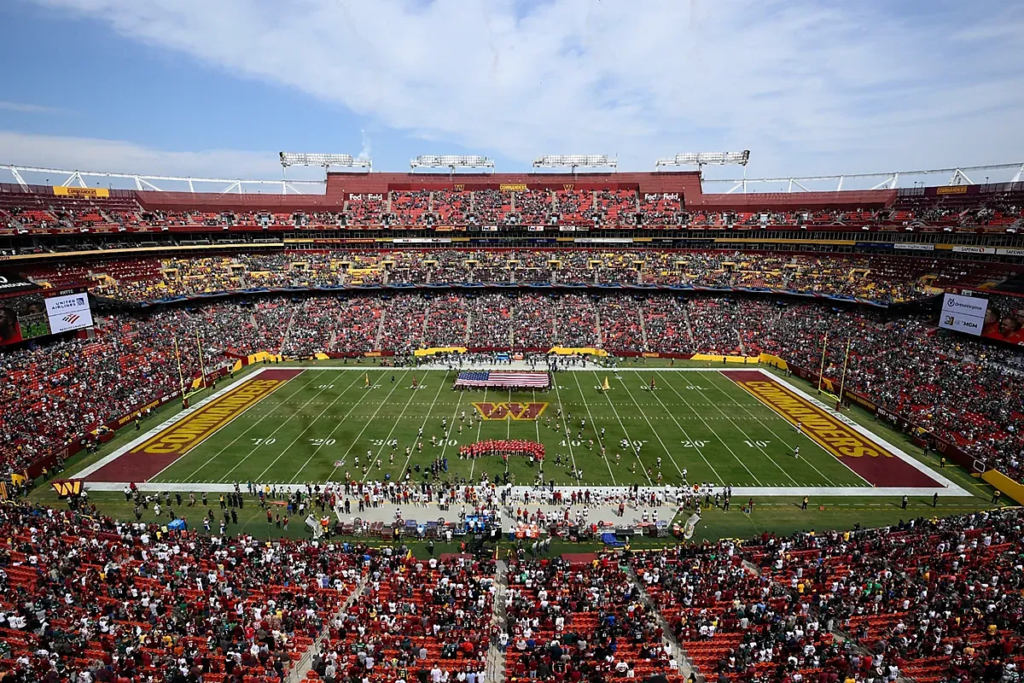Since its initial proposal, the Washington Commanders‘ $3.7-$3.8 billion stadium plan has undergone several key revisions, spurred partly by political controversy and local officials’ growing demands for a more equitable deal.
Under owner Josh Harris, the team still intends to finance roughly $2.7 billion of the project, with the District of Columbia contributing about $500 million toward infrastructure, a split preserved in recent renegotiations.
President Donald Trumpdramatically injected a new complication by publicly demanding that the team discard its “Commanders” name and restore the old “Redskins” identity.
Trump declared: “I may put a restriction on them if they don’t change the name back to the original ‘Washington Redskins,’ and get rid of the ridiculous moniker, ‘Washington Commanders,’ I won’t make a deal for them to build a stadium in Washington.”
Despite Trump‘s threats, Commanders leadership has remained steadfast.
Earlier this year, owner Josh Harris stated, “Now, in this building, the name Commanders means something. It’s about players who love football, are great at football, hit hard, mentally tough, great teammates. It’s really meaningful that that name is growing in meaning.”
That sentiment reinforces the franchise’s current identity, established in 2022.
Meanwhile, D.C. officials have continued working to refine the deal and move it through the City Council. An earlier vote originally slated for midJuly was postponed to allow deeper scrutiny of financial terms and community impact.
Revised agreement offers stronger returns for Washington
Mayor Bowser called the project “the most important economic development project in the history of Washington, D.C.,” while Chair Mendelson said: “We feel we have a much improved agreement that would bring the team back to their historical home.”
Commanders President Mark Clouse echoed the sentiment: “Through this process, we’ve seen firsthand how committed our city’s leaders are to building a strong future for the District.”
Discovery of delays and partisan overtones threatened momentum, particularly as Trump continued pressuring on his social platforms. But local leaders and franchise executives appear unified in progressing toward a vote currently scheduled for August 1, 2025.
Should the council approve the revised $3.7 billion package, which includes a domed, 65,000seat stadium at the RFK site alongside retail, parks, and housing, the team has signaled that construction would begin by late 2026 with a goal of completion around 2030.
While Trump‘s name-change ultimatum has roiled the debate, his legal ability to intervene remains murky. The land at RFK Stadium was transferred to D.C. by Congress earlier this year, and no formal mechanism exists for presidential veto over local projects.
Read the full article here

